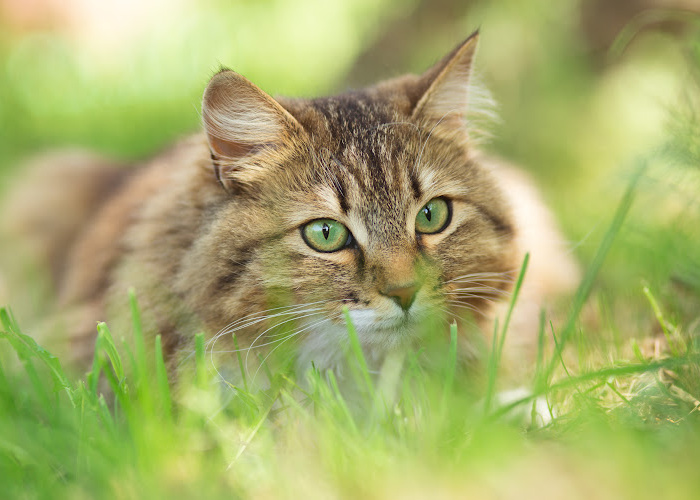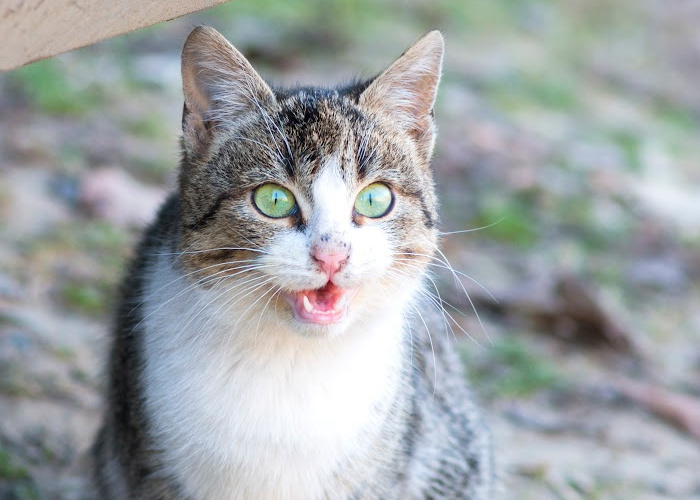It's crucial to know that students with autism and ADHD need special study strategies. Autism…

Can Cats Be Autistic? Interpreting Autism-like Behaviors in Cats
Have you ever wondered if cats can be autistic? The world of cat behavior is full of mysteries, and it’s not unusual for us to think our furry friends might share some human traits – like autism.
Autism is a complex condition that affects people, but can it affect cats? This question has started lots of interesting debates.
In this blog, we’re going to explore this idea. We’ll look at cat behaviors that might seem like autism, and talk about how to care for cats that have special needs.

Can Cats Have Autism?
Feline autism is a topic that sparks curiosity among many cat owners. However, it’s crucial to understand that cats can’t be diagnosed with autism like humans can.
You might notice certain behaviors in your cat that remind you of autism. For instance, they might repeat certain actions or show reluctance towards social interactions. But these behaviors are usually a result of different conditions or needs.
Interestingly, some cats might even behave in ways that resemble Down syndrome. This just goes to show how multifaceted and complex cat behavior can be.
Despite these seemingly similar behaviors, it’s important to remember that this doesn’t necessarily mean your cat has autism. These behaviors could be a result of their genetic makeup, their environment, or various health problems.
If you observe your cat exhibiting these behaviors, the best course of action is to consult a vet. They can ensure your cat’s health and happiness.

Cats and Autism-like Behaviors
Cats can’t have autism, but they can act in ways that might make us think they do. These actions could mean something else is going on, or it could just be how the cat is.
Let’s look at some cat behaviors that might seem like autism.
Doing the Same Thing Over and Over:
Cats might do the same thing again and again. This could be normal for them, or it could mean something is wrong. It’s important to watch how often and how long they do these things to know if it’s normal or not.
Not Liking to Be Touched or Loud Noises:
Cats might not like being touched or hearing loud noises. This doesn’t mean they have autism. It could mean they are in pain or uncomfortable.
Wanting to Be Alone:
Cats might want to be alone more than being with other cats or people. This might look like autism, but it could be normal for them, or something else could be causing it.
If your cat is acting this way, you should talk to a vet. They can make sure your cat is healthy and help you understand their behavior.
Learn More: Can Cats Sense Autism? The Truth Behind Your Cat’s Sixth Sense.

Why Do Cats Act Autistic?
Even though cats can’t have autism, they can act in ways that make us think they do. Let’s look at some reasons why cats might act like this.
Cat Genes:
Cat behavior comes from their genes. But genes do not cause autism in cats. Even though some cat breeds might be more shy or aggressive, this does not mean they have autism. No research has found any genes in cats that cause behaviors like those seen in autistic children.
Environment:
Changes in a cat’s surroundings can make them act differently. This does not mean they have autism. Things like moving to a new home, a new pet, or loud noises can make cats act in ways that remind us of autism. But these behaviors are usually because of stress, not autism.
Health Problems:
Cats can act differently because of health problems. This can look like autism, but it’s not. Health problems that can make cats act this way include anxiety, Obsessive Compulsive Disorder, and diseases like kidney disease or diabetes. Cats can also be more sensitive to things like loud noises because of health problems.

Caring for Cats with Autistic-like Behaviors
Caring for cats that show behaviors similar to autism involves understanding their unique needs and providing a supportive environment.
Here, we discuss how to create a safe environment, establish routines and enrichment activities, and when to seek professional help to ensure your cat’s well-being.
By doing so, cat owners can help their cats thrive despite their special needs.
Creating a Safe Environment:
The first step is to create a secure environment for your cat. This means providing a calm and quiet area where they can retreat when they feel overwhelmed or anxious.
Reducing noise and activity can help them feel more comfortable. Also, giving them plenty of stimulation and companionship can be beneficial.
Here are some items that can provide a sense of safety and security for cats:
- Cat trees or towers with enclosed spaces or hiding spots
- Cat shelves or perches placed at varying heights
- Cat tunnels or hiding boxes
- Cat window perches or window boxes
- Cozy cat beds or blankets in peaceful areas
- Vertical scratching posts or wall-mounted scratching surfaces

Setting Up Routines and Fun Activities:
Cats that act like they have autism need a regular schedule and fun toys. A regular schedule makes cats feel safe. It helps them know what to expect. This can help them feel in control.
Using the same schedule every day, not changing things too much, and giving rewards for good behavior can help change their behavior.
Fun toys help keep cats busy. They can stop them from getting bored. They can also give them a place to relax and be themselves. Here are some toys that might be good for cats that act like they have autism:
- Mats that make them search for food
- Homemade toys
- Toys that move on their own
- Toys that smell like you
- Toys that make them solve puzzles
- Laser pointers (but only use these sometimes and watch them while they play)
- Toys filled with catnip
- Toys that let them pretend to hunt

When to Get Help:
If your cat acts like it has autism, it’s a good idea to talk to a vet or an animal behaviorist. They can check if your cat has health problems that might cause these behaviors. They can also give you advice on how to help your cat get along with other animals and people.
Remember, you shouldn’t try to figure out what’s wrong with your cat by yourself. Even if you think you know a lot about cats, it’s always best to talk to a vet. They can make sure your cat gets the right treatment and help it needs.
Conclusion
While cats cannot be diagnosed with autism, understanding and addressing their unique behaviors and needs can help them live happy and healthy lives.
By providing a calm and predictable environment, establishing regular routines and enrichment activities, and seeking professional help, cat owners can ensure their feline friends thrive and experience a high quality of life.
Remember, every cat is unique, and by understanding their behaviors, such as eye contact, we can better care for our feline companions and forge a stronger bond with these fascinating creatures.

Frequently Asked Questions
In this section, we will address some of the most frequently asked questions regarding cats and behaviors that might resemble autism.
Can cats be diagnosed with autism like humans?
No, cats cannot be diagnosed with autism like humans. While cats may exhibit behaviors that seem similar to autistic behaviors in humans, these are more likely attributed to their genetic makeup, environmental factors, or health conditions.
Why do some cats exhibit repetitive behaviors like an autistic person?
Cats may exhibit repetitive behaviors due to various reasons such as stress, anxiety, or even just as a part of their natural behavior. It’s not accurate to compare this directly with an autistic person, as the causes and implications are different for cats.
How can I ensure my cat leads happy and healthy lives despite showing autism-like behaviors?
To ensure happy and healthy lives for your cat, provide a safe and comfortable environment, engage them with stimulating activities, maintain consistent routines, and consult with a vet for any health concerns or behavior modification techniques.
Do loud noises affect cats in the same way they might affect someone on the autism spectrum?
While loud noises can be stressful or frightening for cats, the way they process and react to these noises is different from individuals on the autism spectrum. It’s important to provide a calm environment to reduce stress for sensitive cats.
Is there a connection between certain cat breeds and autism-like behaviors?
There is no scientific evidence to suggest that certain cat breeds are more prone to autism-like behaviors. Factors like genetics, environment, and individual health can influence a cat’s behavior, but it’s not linked to autism as in human beings.
What should I do if my cat exhibiting signs of stress or anxiety?
If your cat exhibiting signs of stress or anxiety, such as excessive grooming or avoidance of social interaction, it’s important to consult a veterinarian. They can provide a thorough evaluation and recommend appropriate treatment or environmental enrichment strategies.
Are cats more sensitive to sensory sensitivities like bright lights or certain chemicals?
Cats can have sensory sensitivities to elements like bright lights or certain chemicals, but this varies from cat to cat. It’s important to observe your cat’s reactions and adjust their environment accordingly to keep them comfortable.
What are some common signs that might indicate a cat is feeling anxious or stressed?
Common signs of anxiety or stress in cats include excessive vocalization, hiding, changes in eating habits, and altered social interactions. It’s crucial to address these signs early by consulting a vet or an animal behaviorist for guidance.



This Post Has 0 Comments